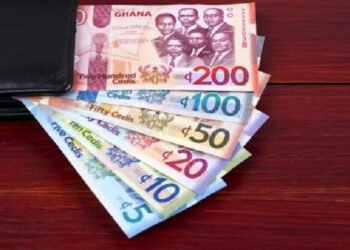Ghana’s inflation outlook for the final quarter of 2025 remains positive despite the recent upward adjustment in electricity tariffs.
A 1.14% increase in power tariffs, effective October 1, 2025, is unlikely to disrupt the ongoing disinflationary trend, according to a report by IC Research. Analysts argue that the favorable base effect from September onwards will outweigh the modest tariff hike, keeping inflationary pressures in check.
The Public Utilities Regulatory Commission (PURC) announced the marginal 1.14% increase in electricity tariffs as part of the government’s quarterly adjustment mechanism. While such hikes typically raise concerns about inflationary pass-throughs, IC Research’s analysis suggests otherwise.
The report noted: “The modest nature of this increase, coupled with the favorable base effect in the coming months, will ensure that inflation remains on its downward trajectory through the fourth quarter.”
This development is significant as September 2025 already saw a sharp decline in year-on-year inflation to 9.4%, the lowest in four years. Analysts believe this provides a strong cushion against price volatility in the months ahead.
Businesses Brace for Higher Operational Costs
While the broader economy may not experience a direct inflationary impact, certain industries are expected to feel the pinch. Businesses that rely heavily on electricity, particularly Fast-Moving Consumer Goods (FMCGs) companies and Oil Marketing Companies (OMCs), will face a modest uptick in operational costs.
Fan Milk PLC, for instance, already recorded a staggering 44.2% year-on-year increase in operational expenditure during the first half of 2025. Analysts warn that the tariff adjustment could exacerbate cost pressures for the company in the quarters ahead.
On the other hand, TotalEnergies appears to be better positioned. The company’s ongoing investment in solarisation across its service stations has cushioned operational expenditure growth to 12.9% year-on-year in the first half of 2025—well below the national inflation average.
Government’s Commitment to Cost-Reflective Tariffs
One of the highlights of the report is the government’s renewed commitment to quarterly tariff adjustments. This policy, while unpopular among consumers, is seen as a positive step for the long-term stability of the energy sector.
According to IC Research, such adjustments are critical in moving the country closer to cost-reflective tariffs, ensuring that power utilities recover costs sustainably. Analysts stress that without these incremental adjustments, Ghana risks accumulating further debt in the energy sector.
Another positive development comes from the Electricity Company of Ghana (ECG), which has been lauded for its compliance with the Cash Waterfall Mechanism. This framework ensures equitable payments to service providers within the energy sector.
The report revealed that as of July 2025, ECG had fully complied with disbursement requirements for all Level A beneficiaries—including seven Independent Power Producers (IPPs) and two fuel suppliers—as well as Level B beneficiaries comprising state-owned energy entities.
This improvement has been attributed partly to the enforcement of the Treasury Single Account for ECG, which enhances financial discipline and transparency in the sector.
Government Disbursements Bolster Energy Sector
Between June and September 2025, the Ministry of Finance disbursed a total of US$682.31 million to sustain energy sector operations. Of this amount, US$94.04 million was allocated for liquid fuel, US$152.38 million for IPPs, and US$435.88 million for gas supplies and transportation.
Such financial support underscores the government’s determination to stabilize the sector, which has been a persistent source of fiscal strain over the years. The timely disbursement of funds has also reassured investors and stakeholders of Ghana’s commitment to addressing structural challenges within the energy landscape.
Analysts’ Outlook for Inflation
With inflation already trending downward for nine consecutive months, analysts remain optimistic about Ghana’s macroeconomic outlook. The favorable base effect, supported by tight monetary policy and stable exchange rate conditions, is expected to maintain the disinflationary trend through the end of 2025.
IC Research, however, cautions that while inflation may remain stable, cost pressures for businesses cannot be overlooked. The divergence between consumer inflation and business operational costs could create challenges for profitability in key sectors, particularly in manufacturing and distribution.
The recent 1.14% electricity tariff adjustment has sparked debates, but analysts insist its inflationary impact will be negligible. Thanks to a favorable base effect and ongoing fiscal support for the energy sector, Ghana’s inflation trajectory remains steady.
However, businesses—especially those in energy-intensive sectors—must brace for higher operational costs. The government’s continued commitment to cost-reflective tariffs and timely sector disbursements could, in the long run, pave the way for a more stable and sustainable energy ecosystem.























